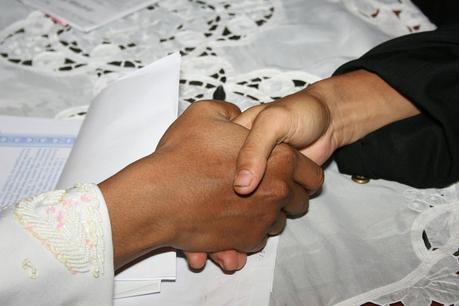 It's difficult to write today, but it would be worse to keep silent.
It's difficult to write today, but it would be worse to keep silent. "I don't want to become a #hashtag. Becoming a #hashtag is a very real fear in my community."
Yesterday at the end of a long and good meeting, a few of of us began talking. The conversation was around race and privilege, power and perspective. It was rich and challenging. It was a Haitian friend who began the conversation by talking about being a hashtag.
She was referring to the common social media practice of writing or tweeting about shooting victims by using the # (hashtag) symbol. As a first generation Haitian immigrant, Maddie* falls under the 'black' category. She talks with her black friends about being a hashtag, a victim of the endemic problem of being black and being shot. They all worry about this.
"I think about this" she said. "I think about how I would be described and validated -'she baby sat for kids down the street. She was a straight-A student. Her family was known in the community.'" We talked about the stress that she feels daily; the thought she has to put into decisions; the orientation she has to give to Haitians who are new to this country, and don't know what it is to be black in America.
I don't know about you, but I never worry about becoming a random victim of a police shooting. I don't worry about being stereotyped as someone who is dangerous. I don't worry that my life would have to be validated by how "good" I was in order to justify that I shouldn't have been shot. I don't worry that I will become a hashtag on someone's twitter feed.
My heart is heavy. For so many of my friends, none of this is theory. It is daily life.
I realize that I am privileged to know the people I do, to live and work in places where diversity is the norm, not the exception. Because you look at life differently when your friends come from all over the world. You experience life in new ways when you rub shoulders with a black woman who grew up in Roxbury, a Haitian woman who moved to this country as a child, a man from Malawi who sits in the cubicle next to you every day.
I'm convinced that the best way forward for individuals is through relationships. When black Americans are your friends, your conversations look different. While I can never know their reality, I can listen and learn about what is harmful and what is helpful. While I cannot walk in their shoes, I can learn what it is to walk beside them. While I will not experience their particular sorrows and pain, I can ask them questions and pursue cultural humility.
So I have no answers other than to challenge all of us on the value of having friends who look different than we do. If people all around me mirror my skin color, my hair color, my language, and my culture then it is difficult to see the world through the eyes of another.
My friend Jody writes from a perspective of living in a cross-cultural marriage and learning to navigate "a complicated world of race relations while living as the only interracial family in a small Midwestern town for eight years." Jody is a bridge-builder and has written an excellent and practical book called Pondering Privilege -toward a deeper understanding of whiteness, race, and faith.
In her first chapter, Jody extends a call for cultural humility. She says this:
Instead of "Get over it", cultural humility responds. "I don't understand. Can you help me understand more deeply?" Instead of replying with some variation of "quit whining" to someone who feels wronged, cultural humilty responds, "I'm so sorry this hurts you. How can I walk alongside you in this? What do I need to learn?" Instead of saying "Why do you keep causing problems?", cultural humility responds, I'm sorry I keep hurting you. It seems like I'm missing something big. How would you recommend I start to better understand your experience?" Instead of keeping quiet because of cultural ignorance, cultural humility responds, "I'm a little embarassed that I don't know much about your background. I don't even know how to ask you questions about it, but I would love to learn more."In closing I too want to extend a call - a call to build bridges and tear down walls. Every day we see the results of a fractured world; a world of people unwilling to listen and at the ready to defend and construct barriers. I am utterly convinced that we are called to build bridges, to tear down walls, to mend fences, to move forward in relationships. Indeed, there is no other way forward.
The Painful Realities of White Privilege by Jody Wiley Fernando
You can buy Pondering Privilege here.
*Not her real name.

